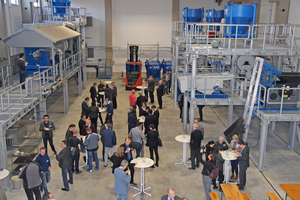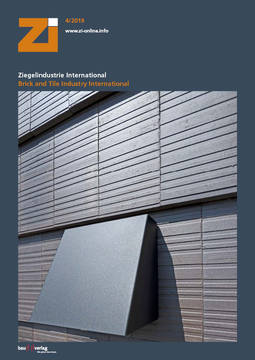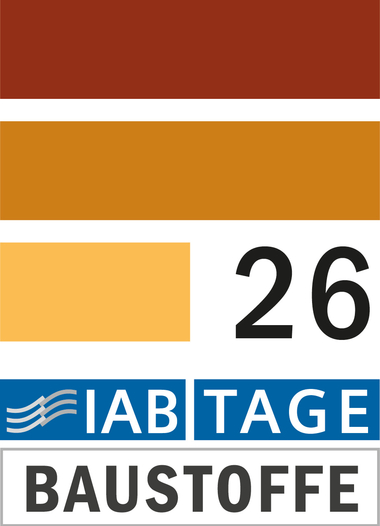Pilot plant for construction material recycling now in operation
IAB Director Dr. Ulrich Palzer introduced the recycling pilot plant to the audience within the framework of a forum on resource efficiency in the construction industry. Palzer emphasized the new plant’s capacity for processing a wide variety of residual construction materials in a way that was not previously possible. Until now, the quality of most recycled residual construction materials has been considerably inferior to that of the starting materials. As Palzer reports, though, IAB’s new recycling centre has succeeded in achieving what up to now has only been possible for less than five percent of all residual construction materials: turning waste material into recycled material of at least equivalent or even superior quality. The lightweight aggregates obtained via high-tech recycling are one-third less expensive than those made from natural raw materials.
Lightweight aggregate is obtained from a mixture of construction waste comprising bricks and sundry other wall building materials together with various mortars and plasters. In the newly perfected process, gypsum is decomposed by heat treatment and recovered as recycled gypsum. In addition to lightweight aggregate, the process can also yield calcined clays for use in substituting cements and modifiers in concrete production.
The core component of the plant is a rotary kiln that IAB developed in cooperation with the Weimar-based company Ibu-Tec. The IAB pilot plant serves as a model for additional plants potentially destined for use at recycling companies. The entire process, from the primary crushing of construction waste in a jaw crusher, through its classification, grinding and shaping in a dish granulator and, finally to its heat treatment in the rotary kiln, can be tested in actual practice.
The plant belongs to the Thuringian “Innovation Centre for Recyclable Materials”, which is currently under construction on the University Campus in Nordhausen. The hall itself and the technical infrastructure cost around € 2 million each. IAB received approx. € 3.6 million in funding from the State of Thuringia and the Federal Government.
IAB – Institut für Angewandte Bauforschung Weimar gGmbH
www.iab-weimar.de




